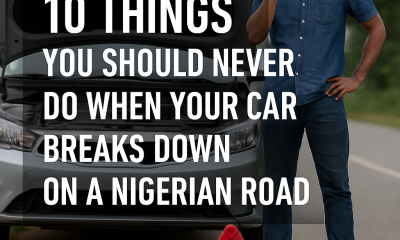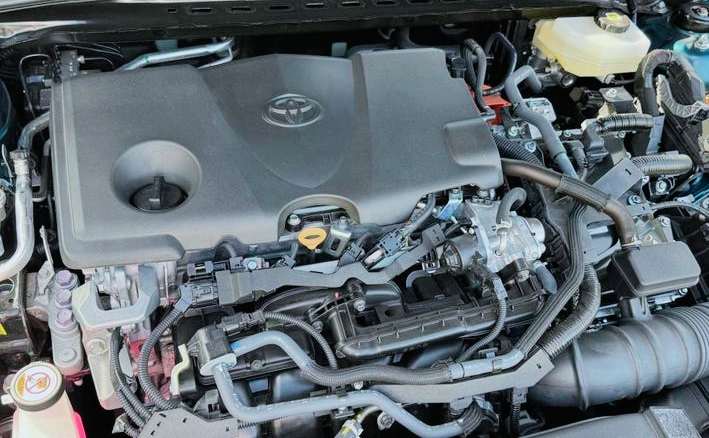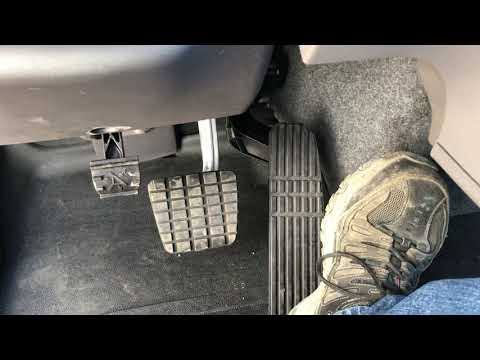Articles
Signs Your Brakes Need Immediate Attention
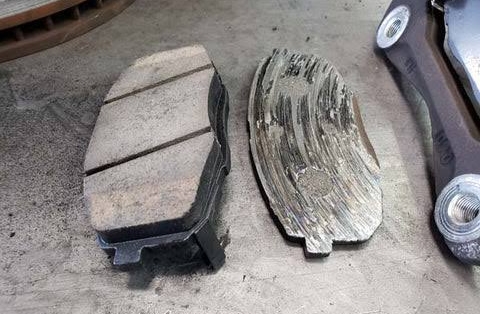
Your car’s braking system is critical for road safety. While regular maintenance is essential, it’s equally important to recognize the warning signs that your brakes need immediate attention.
Ignoring brake issues can lead to decreased stopping power, increased accident risk, and costly repairs.
Here’s a detailed guide on the key indicators that your brakes may be failing and why these signs should never be ignored.
1. Squeaking, Squealing, or Grinding Noises
One of the most common signs that your brakes need attention is unusual noises, such as squeaking or grinding. Here’s what each sound can indicate:
- Squeaking or Squealing: This often means your brake pads are wearing thin. Brake pads have wear indicators that make a squealing noise when the pads get too thin, signaling that they need replacement.
- Grinding: If you hear a grinding sound, it usually means the brake pads are completely worn down, and metal is rubbing against metal. This can damage the rotors, requiring more expensive repairs and potentially reducing braking effectiveness.
If you notice any of these noises, it’s crucial to have your brakes inspected right away. Continuing to drive with worn brake pads or damaged rotors can compromise your ability to stop safely.
2. Vibrations or Pulsating Brake Pedal
A vibrating or pulsating brake pedal is often a sign of warped rotors. Rotors are the components that your brake pads clamp down on to stop the wheels. When rotors warp, the surface becomes uneven, leading to a vibrating sensation in the brake pedal.
Warped rotors can occur due to excessive heat from frequent hard braking or driving down steep hills.
This issue should be addressed as soon as possible because warped rotors can affect braking performance, making it harder to come to a smooth stop.
Ignoring it can lead to uneven wear on your brake pads and further damage to the braking system.
3. Soft or Spongy Brake Pedal

If your brake pedal feels soft or spongy, it could indicate a problem with the brake fluid or air in the brake lines. Brake fluid is essential for hydraulic braking systems, as it transmits the force from your foot to the brakes.
If there’s air in the lines or a leak in the system, it can cause a loss of hydraulic pressure, leading to a soft brake pedal and reduced stopping power.
A soft brake pedal can be a sign of a brake fluid leak, which can be dangerous and should be addressed immediately.
If you notice that your brake pedal doesn’t feel as firm as usual, it’s best to have a professional inspect your braking system to ensure there are no leaks or issues with the brake lines.
4. Brake Warning Light on the Dashboard
The brake warning light on your dashboard is a clear sign that your braking system needs attention. This light can indicate several issues, from low brake fluid to a problem with the ABS (Anti-lock Braking System).
When the brake warning light appears, don’t ignore it. Some cars have separate lights for the braking system and ABS.
If either light is on, it’s best to have your brakes inspected as soon as possible to diagnose the underlying issue and ensure your vehicle remains safe.
5. Car Pulls to One Side While Braking
If you notice that your car pulls to one side when you apply the brakes, it could be due to uneven brake pad wear or a problem with the brake calipers. This issue can affect your ability to control the car, especially during sudden braking situations.
When brake pads wear unevenly, the car may veer to one side because one side is providing more stopping power than the other.
Another potential cause is a stuck caliper, which can prevent one brake from engaging fully. A vehicle that pulls to one side is a safety hazard, so it’s essential to have the brakes inspected to identify the cause and make necessary repairs.
6. Burning Smell When Braking
A burning smell when braking is often a sign that the brakes are overheating. This can happen if you brake excessively on steep declines or if your brake caliper is sticking. Overheated brakes can lose stopping power, leading to a condition known as brake fade.
Brake fade reduces the friction necessary to stop the car effectively, which can be dangerous, especially in emergency braking situations.
If you smell a burning odor while driving, pull over safely, allow your brakes to cool, and have them checked by a professional. Overheating can damage brake components and compromise your braking system.
7. Brake Fluid Leaks
Brake fluid leaks are a serious issue that can lead to brake failure. If you notice any puddles under your vehicle, check the fluid. Brake fluid is typically clear to light brown and has a distinct, slightly oily texture.
A loss of brake fluid can prevent your brakes from generating enough pressure to stop the car safely.
Leaks can occur due to worn brake lines, a damaged master cylinder, or deteriorated seals. If you suspect a brake fluid leak, have your vehicle inspected and repaired immediately to avoid a complete brake system failure.
8. Increased Stopping Distance

If you find that your car takes longer to come to a stop, this could indicate that your brakes are wearing out or that the brake pads are not gripping the rotors effectively. This could be due to worn pads, low brake fluid, or failing brake components.
Increased stopping distance is especially dangerous during emergency braking situations or when driving on wet or icy roads.
Addressing this issue promptly can help prevent accidents and keep your braking system in good working condition.
9. Brake Pedal Feels Stiff or Hard
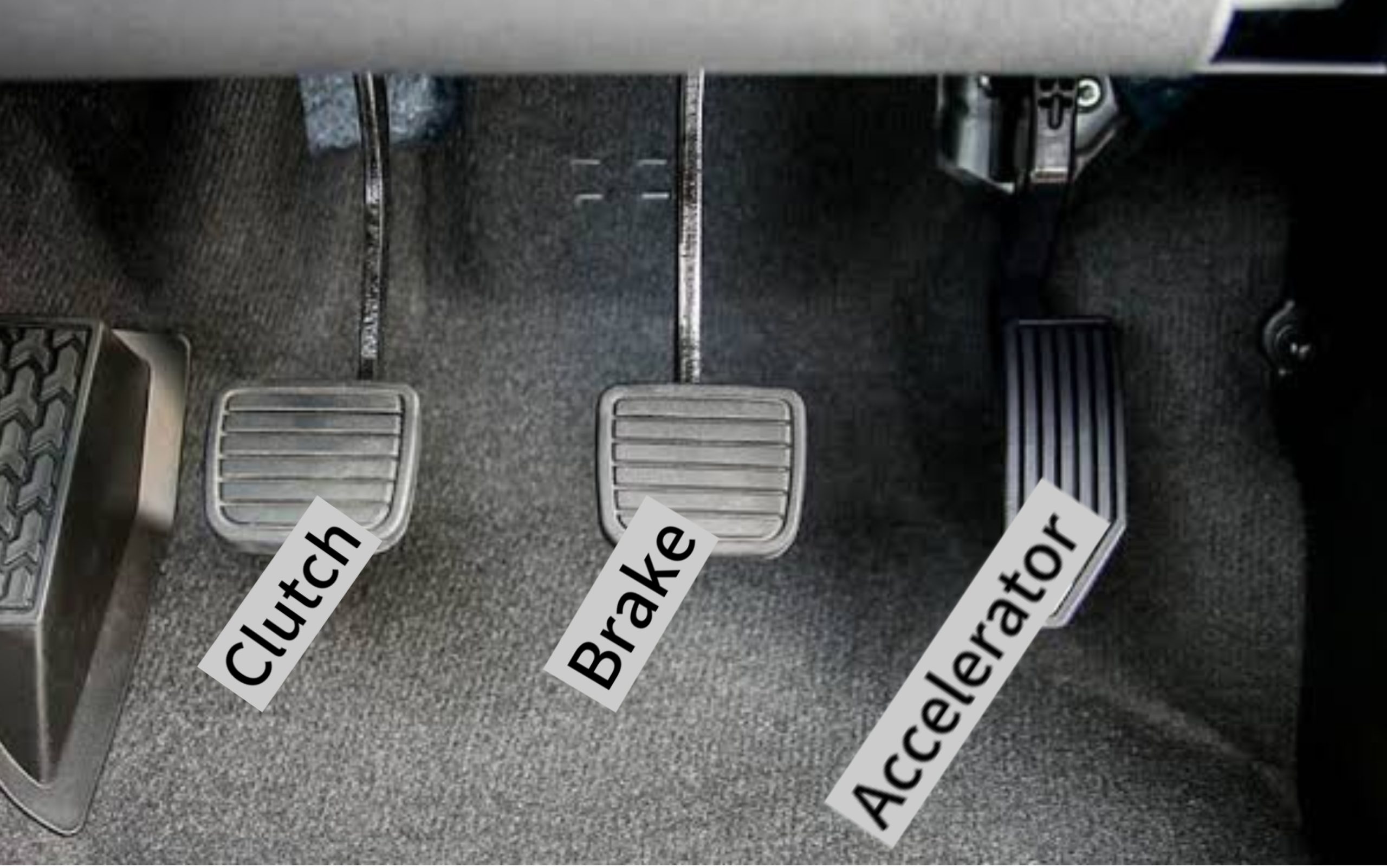
Pedals control
A brake pedal that feels unusually stiff or hard to press can be a sign of a power brake booster problem.
The brake booster uses vacuum power to reduce the effort required to press the pedal. If it fails, braking becomes much harder, and it requires more force to stop the vehicle.
If you notice that your brake pedal is stiff, it’s important to have the system inspected by a professional. Ignoring this issue can lead to reduced braking performance, increasing the risk of accidents.
10. Unusual Vibrations or Wobbling During Braking
If your steering wheel or car vibrates when you brake, it could be due to issues with the rotors, suspension, or alignment.
Vibrations during braking often occur when the rotors are worn or uneven, affecting your vehicle’s stability when coming to a stop.
Unusual vibrations can be a sign of uneven wear on the tires or suspension problems. An inspection can help identify the exact cause and determine if your rotors or other components need to be replaced.
Brakes are a critical safety feature of any vehicle, and recognizing the signs of brake problems can prevent accidents and costly repairs.
From unusual noises and vibrations to warning lights and longer stopping distances, each symptom can indicate an underlying issue in the braking system that needs immediate attention.
Regular brake inspections and timely maintenance can extend the life of your brakes and ensure they perform effectively.
If you experience any of the warning signs mentioned above, it’s best to consult a trusted mechanic or auto repair shop as soon as possible. Ignoring brake issues can lead to severe safety risks and more extensive damage to your vehicle.
By staying aware of these signs and addressing brake issues early, you can enjoy a safer, smoother driving experience and help protect yourself and others on the road.

